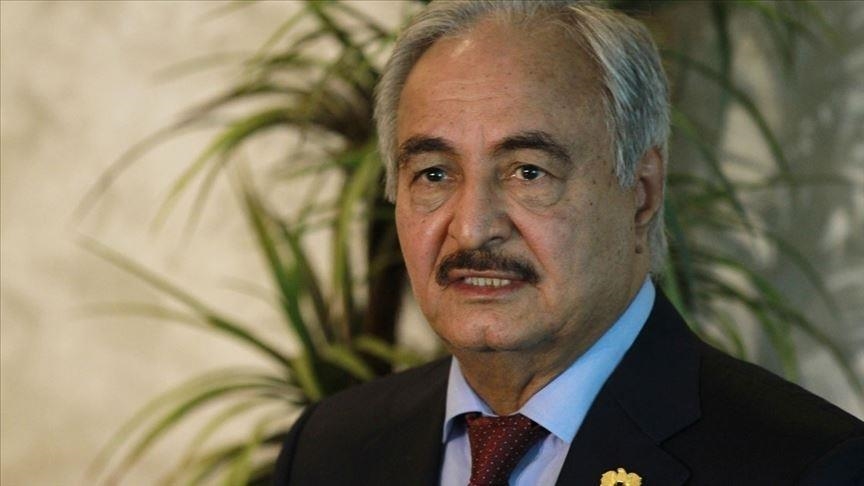
TRIPOLI, Libya
Libyan warlord Khalifa Haftar on Tuesday announced he will run in the country’s upcoming presidential elections.
In a televised speech, Haftar said the elections are the only way out of the Libyan crisis.
"I declare my candidacy for the presidential elections, not because I am seeking for authority but because I want to lead our people towards glory, progress and prosperity," Haftar said.
Haftar is a controversial figure in the Libyan political scene, who is backed by regional powers, including Egypt, France and Russia.
Haftar's self-proclaimed "Commander-in-Chief of the Libyan National Army” has contributed greatly to the decade-long turmoil in Libya after leading a 14-month military offensive, with the support of foreign powers, to unsuccessfully topple the internationally recognized Government of National Accord (GNA) in the west.
Mass graves in Libya’s southwestern city of Tarhuna, a former stronghold for Haftar, continue to be discovered since the warlord’s defeat in June 2020 with hundreds of bodies exhumed.
Having helped former strongman Muammar Gaddafi come to power in 1969, Haftar fell out with his boss in the late 1980s and sought asylum in the US.
Haftar reappeared in the Libyan political scene during the 2011 uprising that led to Gaddafi’s ouster and subsequent death.
He joined the Libyan opposition and made the eastern city of Benghazi his base and stronghold.
Despite the February agreement that paved the way for a unity government in Libya, Haftar still acts independently of the legitimate government and leads an armed militia that controls vast areas in the east.
On September 22, Haftar assigned his forces' chief-of-staff to take his military post temporarily for three months to prepare himself for running for elections.
Libya’s presidential and parliamentary elections are set to take place on Dec. 24 under an UN-sponsored agreement reached by Libyan political rivals during meetings in Tunisia on Nov. 15, 2020.
The oil-rich country’s electoral commission on Nov. 8 opened registration for candidates in the polls despite ongoing tensions between the parliament, the High Council of State, and the unity government regarding electoral powers and laws.
Libyans hope that the upcoming elections will contribute to ending an armed conflict that has plagued the oil-rich country for years.
Writing by Ahmed Asmar in Ankara







